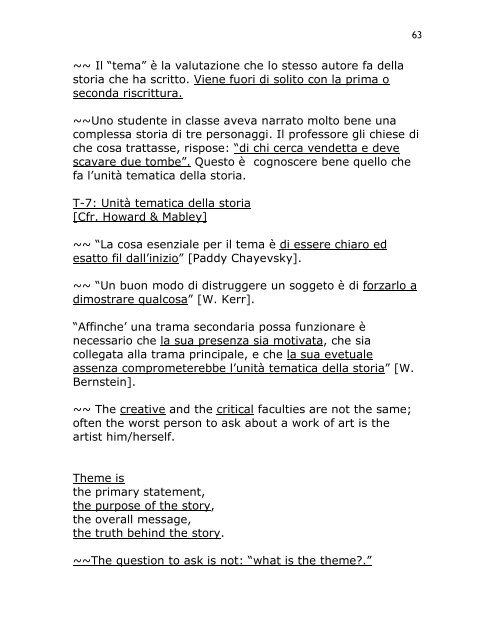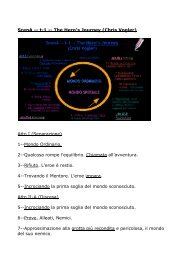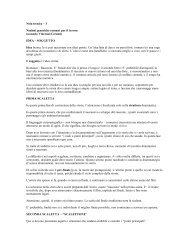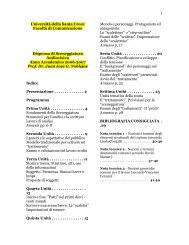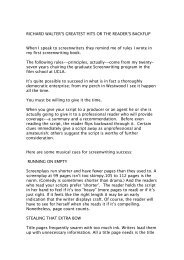Prof. Juan G. Noblejas
Prof. Juan G. Noblejas
Prof. Juan G. Noblejas
You also want an ePaper? Increase the reach of your titles
YUMPU automatically turns print PDFs into web optimized ePapers that Google loves.
63<br />
~~ Il “tema” è la valutazione che lo stesso autore fa della<br />
storia che ha scritto. Viene fuori di solito con la prima o<br />
seconda riscrittura.<br />
~~Uno studente in classe aveva narrato molto bene una<br />
complessa storia di tre personaggi. Il professore gli chiese di<br />
che cosa trattasse, rispose: “di chi cerca vendetta e deve<br />
scavare due tombe”. Questo è cognoscere bene quello che<br />
fa l’unità tematica della storia.<br />
T-7: Unità tematica della storia<br />
[Cfr. Howard & Mabley]<br />
~~ “La cosa esenziale per il tema è di essere chiaro ed<br />
esatto fil dall’inizio” [Paddy Chayevsky].<br />
~~ “Un buon modo di distruggere un soggeto è di forzarlo a<br />
dimostrare qualcosa” [W. Kerr].<br />
“Affinche’ una trama secondaria possa funzionare è<br />
necessario che la sua presenza sia motivata, che sia<br />
collegata alla trama principale, e che la sua evetuale<br />
assenza comprometerebbe l’unità tematica della storia” [W.<br />
Bernstein].<br />
~~ The creative and the critical faculties are not the same;<br />
often the worst person to ask about a work of art is the<br />
artist him/herself.<br />
Theme is<br />
the primary statement,<br />
the purpose of the story,<br />
the overall message,<br />
the truth behind the story.<br />
~~The question to ask is not: “what is the theme.”


